

国际标准推动旅游业可持续发展
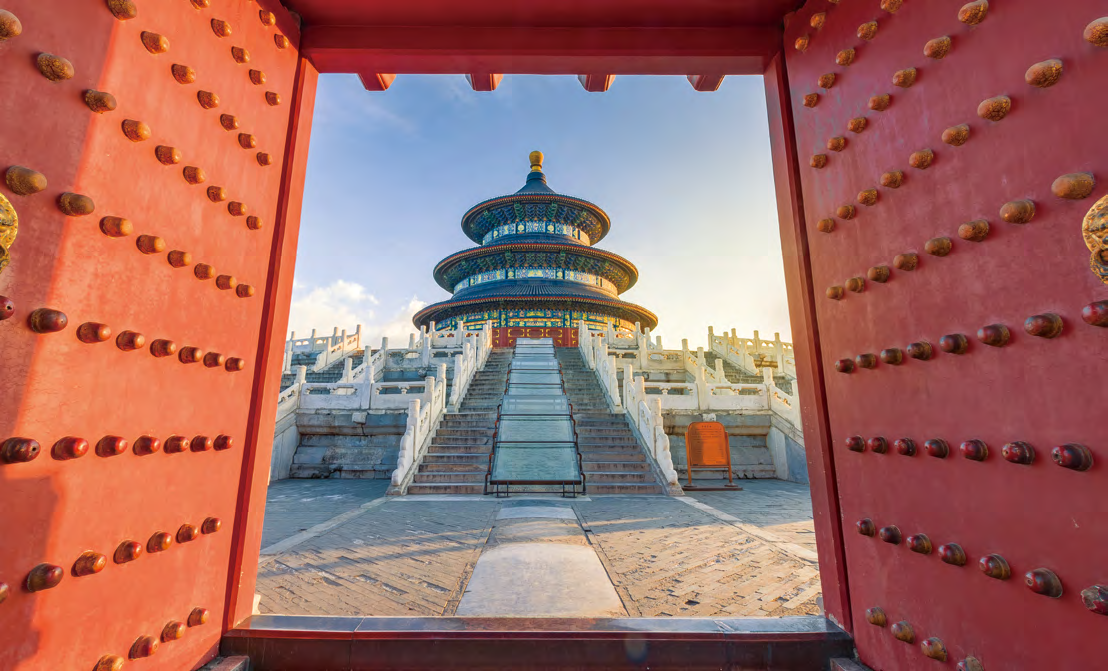
The Ministry of Culture and Tourism (MCT) held a press conference on December 5, 2024 in Beijing, inviting several guests to give a comprehensive introduction to ISO 14785:2024, Tourism and related services—Tourist information services—Requirements and recommendations. The international standard was published by ISO recently, whose development was participated in by Chinese experts with great efforts.
The international standard focuses on tourism information services, which is of great significance for promoting the sustainable development of global tourism. It also indicates a new chapter for China, as it is the first time to contribute its best practice to the development of an international tourism standard.
Background and process of developing ISO 14785:2024
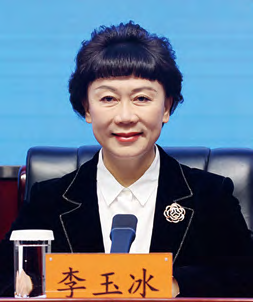
Li Yubing
Deputy Director-General of Standards Innovative Management Department, SAMR
Standardization work has always been highly valued by the Chinese government. The 20th CPC National Congress in October 2022 emphasized the steady expansion of the opening up of rules, regulations, management, standards, and other institutions. Now, China is opening up in an unprecedented way, contributing its solutions to the development of international standardization.
SAMR (SAC) has actively fulfilled its obligations in ISO on behalf of China, a member body of ISO, and vigorously participated in international standardization activities in various fields.
To date, SAMR (SAC) has participated in the activities of 751 ISO technical bodies as a participating member, with the participation rate reaching 99.4%, and more than 10,000 Chinese experts have registered as ISO experts, said Li Yubing, Deputy Director-General of Standards Innovative Management Department, SAMR, at the conference.
ISO/TC 228, Tourism and related services, has published 57 international standards since it was set up in 2005. At present, it has 11 working groups, covering the areas such as ping, sustainable tourism, and accommodation. It has 106 members, including 59 participating members and 47 observing members.
In November 2021, the international standard proposal on requirements and recommendations of tourist information services was approved by ISO, which was put forward by China, aiming to keep up with the informationized development trend of tourist services.
In January 2022, ISO/TC 228/WG 3 on tourist information and reception services was established, and Chinese expert Fang Lin served as its convenor. The working group gathered experts from 19 countries such as Spain, Germany and France as well as two international organizations including UN Tourism to jointly develop international standards. After three years’ efforts, ISO 14785:2024 was published on schedule with a unanimous vote.
As a revised version of ISO 14785:2014, Tourist information offices—Tourist information and reception services—Requirements, ISO 14785:2024 provides minimum quality requirements and recommendations for onsite tourist information services and online tourist information services. It is designed to make tourist information services more professional, efficient and persified, and enhance the travel experience and satisfaction of tourists.
The international standard will facilitate the normative management, and improve the quality of global tourism, which is of profound significance to the tourism industry.
SAMR (SAC) will work with MCT to further exert the leading and supporting role of standards, actively promote the wide application of the international standard in China, and steadily advance the high-quality development of tourism, said Li Yubing.
Highlights of the revised version
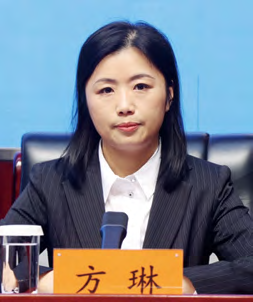
Fang Lin
Convenor of ISO/TC 228/WG 3
ISO 14785:2024 is expected to adapt to the needs of informationized development, specify the scope, content and quality requirements of tourist information services in each country, and provide more considerate and friendly services to tourists via online and offline channels.
The international standard is composed of six parts, including the main content, work requirements, destination promotion, service personnel, infrastructure, as well as recommendations and complaint management. Compared with the 2014 version, the revised standard has significant improvements in several aspects, said Fang Lin, convenor of ISO/TC 228/WG 3.
Firstly, the objects are expanded. The previous version was applicable to physical tourist information centers of all types and sizes. The new standard expands the objects to all agencies that provide tourist information services, including online platforms, which enables a more comprehensive and systematic coverage, and adapts to the global informationized and intelligent developmental trend.
Secondly, the service content is enriched. The previous version focused on the accuracy and comprehensiveness of tourist information. In contrast, the new version expands the content of the information, which includes ticket purchase, currency exchange, health services, safety protection, and foreign language services. The standard stipulates the responsibilities of related posts in tourist information service agencies, and defines the basic techniques and knowledge that an employee should have. It also puts forward that the time for tourist destination information services should be adjusted according to specific conditions such as slack or peak season.
Thirdly, the requirements for online tourist information services are added. The revised version specially emphasizes the requirements for web design, data storage, online equipment and related facilities, and other aspects, and guides various travel agencies to provide more complete tourist information services and more efficient tourism planning experience by making full use of modern information technologies and online channels. The standard also increases two appendixes on recommendations for supporting the UN’s 2030 Agenda for Sustainable Development and providing accessible services for the disabled, the elderly and other special groups respectively.
It pays more attention to sustainable development and humanistic care, and provides all-round guidance on global tourist information services. The standard has been adopted by Spain, the U.K., South Africa, and other countries, which demonstrates its strong applicability. If it is adopted by more countries, tourists will enjoy harmonious and normative information services when travelling around the world, according to Fang Lin.
China’s tourism standardization efforts
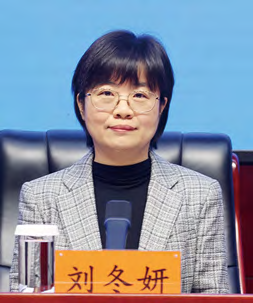
Liu Dongyan
Deputy Director-General of Science, Technology and Education Department, MCT
ISO 14785:2024 is a key breakthrough in the field of tourism standards. The past three years has witnessed China’s remarkable progress in the international standardization of tourism, said Liu Dongyan, Deputy Director-General of Science, Technology and Education Department, MCT.
On the one hand, the working mechanism has been straightened out. After effective communication with SAMR, MCT supported its subordinate Tourism Quality Supervision and Management Bureau to become the domestic mirror committee of ISO/TC 228, and upgraded the role of China in the technical committee to a participating member. It reached a new stage of China’s participation in the international tourism standardization work.
On the other hand, a batch of international standards proposals have been submitted and approved. To follow the trends of digital, networked and intelligent development, MCT has focused on the quality improvement of tourism services, analyzed the fields with gaps, and submitted seven international standards proposals. In addition to ISO 14785:2024, proposals in the fields such as exhibitions and events and online travel agencies have been successively approved. The convenors of several working groups of ISO/TC 228 are assumed by Chinese experts.
Meanwhile, the institutional support has been strengthened. The administrative measures and working rules for the standardization work on culture and tourism have been successively released, incorporating the international standardization work of culture and tourism as an important content with explicit requirements. The research on such standards and the feasibility analysis of adopting international standards have been conducted to lay a theoretical foundation.
According to the National Standardization Development Outline, by 2025, the driving force of standardization will shift from the domestic work to the interaction of domestic and international work. During the development of international standards, MCT has also promoted the development of national standards, and fully absorbed the internationally advanced ideas and practices, better harmonizing the content of national and international standards.
The relevant national standard will be released soon. Then, MCT will well publicize and interpret the standard, encourage more enterprises to implement the standard, and create a high-quality environment for tourist services, according to Liu Dongyan.
Progress of culture and tourism standardization
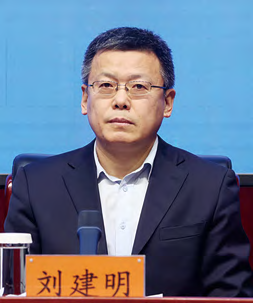
Liu Jianming
Director of Tourism Quality Supervision and Management Bureau, MCT
Since 2020, Tourism Quality Supervision and Management Bureau, as the domestic mirror committee of ISO/TC 228, has actively participated in international standards development, examination, voting, expert registration, meetings and activities, achieving prominent results, said Liu Jianming, Director of Tourism Quality Supervision and Management Bureau, MCT.
Breakthrough has been made in standards development. Up to now, seven international standards proposals submitted by Chinese experts have been approved by ISO, among which the international standard on guidelines for online accommodation booking platform services will be published soon. In the development of these international standards, Chinese experts have disseminated China’s good practice and advanced experience of tourism to the globe. Meanwhile, efforts have been made to adopt relevant international standards in China, including ISO 21621:2021, Tourism and related services—Traditional restaurants—Visual aspects, decoration and services, and ISO 21902:2021, Tourism and related services—Accessible tourism for all—Requirements and recommendations.
A lot of work has been done. Chinese experts have assumed the convenors of four working groups in ISO/TC 228 on online travel agencies, tourism information and reception services, exhibitions and events, and communication respectively. They have led the development of international standards, and worked with more than a hundred of experts from 27 countries including France, Germany, Spain and Russia.
Activities have been actively attended or supported. The Chinese delegation has actively participated the plenary meeting of ISO/TC 228 in 2023 and 2024, introducing the status of tourism standardization in China, and proactively advancing standards development. The plenary meeting of the technical committee will be held in Hangzhou city, East China’s Zhejiang province.
Capacity building has been strengthened. An expert database on tourism international standardization has taken shape with 30 interdisciplinary experts. Nearly 100 experts have been reserved to provide intellectual support for the participation of international standards development.
Notable progress has been made in the international standardization of culture. In ITU, four ITU international standards in mobile phone animation, digital art display, and other fields have been successively published since 2017, and six approved ITU international standards proposals, involving information system for cultural relics and works of art, digital national clothing, and other areas, have been put forward by Chinese experts. The first study group on culture has been set up, which is chaired by a Chinese expert.
In IEC, the international standard for stage lighting has been revised with the contribution of Chinese experts, which is an important part of the most widely used series of standards in the global lighting industry. In ISO, ISO/TC 349, Cultural heritage conservation, the secretariat of which is held by the Palace Museum since March 2024.
The cultural and tourism standardization work has laid a solid foundation and achieved good results through long-term efforts and exploration. According to Liu Dongyan, in recent years, MCT has continued to improve related standards systems. At present, there are 268 national and sectoral standards for culture and tourism, about 60% of which are cultural standards and about 40% are tourism standards.
These standards are accessible on the National Public Service Platform of Standards Information of SAMR or the portal of MCT. Many of these standards are directly related to people’s lives, which can effectively improve the service and management level of the cultural and tourism industry.

Prospect
China has always vigorously promoted the opening up of standardization, and actively built an coherent institutional system, an open and integrated working system, and an internationally compatible standards system.
Positive progress has been made in participating in the governance of international standards organizations, advancing Chinese standards to be harmonized with international ones, deepening international exchanges and cooperation on standards, and strengthening the training of international standardization talent, said Li Yubing.
Standardization, as a bond connecting different countries, cultures and industries, is an indispensable technical basis for the global governance system and economic and trade cooperation.
In the next step, greater efforts will be made in the following aspects. Firstly, promote the institutional opening up of standards, and improve the harmonization of Chinese and international standards. Secondly, participate in the governance and activities of ISO, and encourage stakeholders to take part in international standardization activities, to help improve the international standards systems. Thirdly, release the Administrative Measures for the Adoption of International Standards, revise the Administrative Measures for the Participation in ISO and IEC International Standardization Activities, and increase the training of international standardization talent, contributing to the development of new quality productive forces.
In terms of culture and tourism, MCT will further promote the standardization work, and release more national standards and sectoral standards to meet the needs of people for a better life, according to Liu Dongyan.